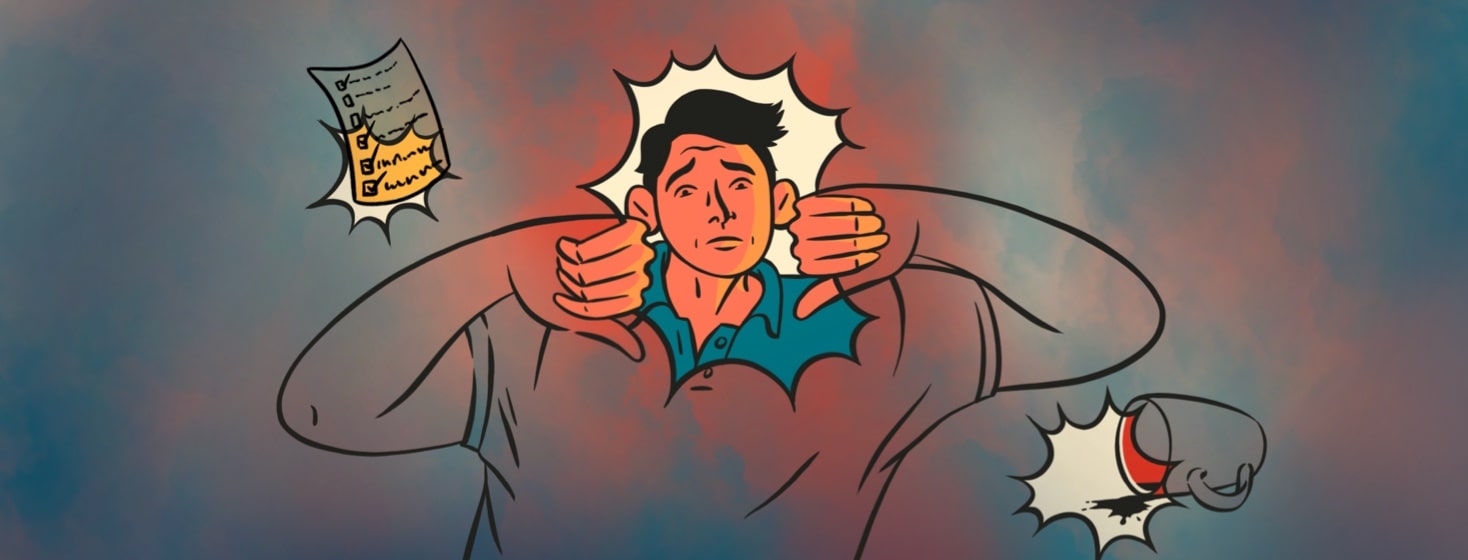Dealing with Post-Insomnia Brain Fog
As someone who has struggled with insomnia for most of my life, there are little "nuggets" of wisdom I feel imperative to share with our community - and one of those, which has been affecting me significantly lately is the brain fog that comes without a good nights sleep.
I have recently noticed that it's not exactly fatigue or exhaustion hitting me midday after an insomnia strike - it is something far harder to put my finger on.
This or That
Do you experience brain fog?
My thoughts feel murky, my brain feels like it's responding slowly, my words come after much thought, and there is just no sharpness to my tongue, my thoughts or my wit. I've come to understand this is how brain fog represents itself for me.
It's not so much trouble recalling things, it's the thick fogginess that comes with trying to think critically, or to answer questions, to work, write, or create.
Combatting my brain fog
I've heard several community members talk about being foggy the day after or for days after stretches of no sleep, but it's not something that caught up to me until recently. I completely recognize that any number of things including my medications, lack of medications, sleep or lack of sleep can contribute to this feeling. But I have to be honest with you, I truly hate it.
How I manage my brain fog
Here's what I'm currently doing to try to combat my own brain fog:
Make lists
I have been making lists everywhere for everything. What I need to do. What I've done. When thing's are due. What I need from the store. Most of my lists are on paper but some are stored in my cell phone for easier access when I'm on the go.
Caffeine
Now, this is a delicate subject when it comes to insomnia, but I've learned that morning caffeine is helpful in both my "waking up" and my brain fog. It helps me to focus, and it doesn't cause jitters or affect my evening sleep schedule.
Capitalize on strong, solid windows of time
When I feel more clear headed, I do as much as possible. This gives me some grace if the brain fog is particularly severe during a time when I have several projects due for work or owe deliverables to less understanding individuals. I try hard to get as much of this done when it feels more seamless to think logically, strongly, and clearly, and then submit it when it's due, regardless of worrying about how I'm feeling at the time.
Be honest
This one is hard. Brain fog is a real symptom of a real condition I have, but it feels intimidating to share with colleagues or friends. However, it has been happening frequently enough lately that I've had to be truthful. I find myself saying things like, "I've been struggling with insomnia quite a bit lately, and, as a result, am dealing with some intense brain fog. Could you remind me of X or could we reschedule Y once I feel more like myself?"
Preparing for the unpredictable
I think the hardest thing for me is not knowing how long the brain fog will last, or when it will lift. But, as with most chronic illnesses, we must prepare for the unpredictable.
Is there anything you would add to the list above? How do you navigate brain fog?

Join the conversation